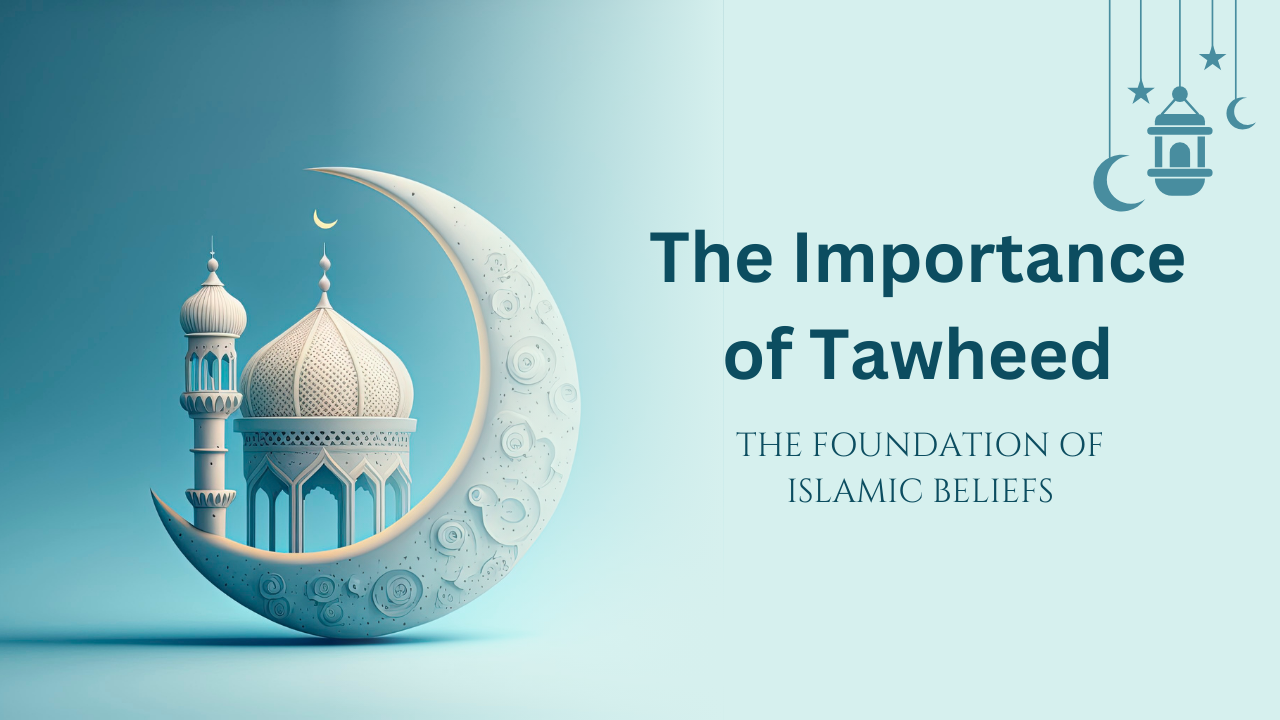
Islamic beliefs are built upon a central and unshakable concept: Tawheed. Tawheed, meaning “oneness” or “monotheism,” is the essence of Islam and the foundation upon which all other aspects of the faith rest. It represents the belief in the absolute oneness of Allah (God) and is the most fundamental principle of Islamic theology. Understanding and embracing Tawheed is essential for every Muslim, as it shapes their worldview, worship, and relationship with the Creator.
What is Tawheed?
Tawheed is derived from the Arabic root word “wahhada,” which means to unify or make one. It encompasses the belief that Allah is the sole creator, sustainer, and ruler of the universe. Tawheed can be categorized into three main aspects:
- Tawheed al-Rububiyyah (Oneness of Lordship): This aspect affirms that Allah alone is the Lord, Creator, Sustainer, and Controller of all that exists. Nothing occurs without His will and decree.
- Tawheed al-Uluhiyyah (Oneness of Worship): This aspect emphasizes that Allah alone is worthy of worship. All acts of devotion, such as prayer, supplication, fasting, and charity, must be directed to Him without associating any partners.
- Tawheed al-Asma wa al-Sifat (Oneness of Names and Attributes): This aspect highlights the belief in Allah’s unique names and attributes. Muslims affirm these attributes without comparing them to those of creation, distorting their meanings, or negating them.
Tawheed as the Foundation of Islamic Beliefs
Tawheed is not merely a theological concept; it is the cornerstone of Islamic beliefs and practices. It influences every aspect of a Muslim’s life, from their acts of worship to their ethical conduct. The significance of Tawheed can be understood through the following points:
1. The Core Message of Prophethood
Throughout history, all prophets and messengers, from Adam to Muhammad (peace be upon them all), conveyed the same core message: to worship Allah alone and reject all forms of idolatry. The Quran repeatedly emphasizes this mission, as Allah says:
“And We certainly sent into every nation a messenger, [saying], ‘Worship Allah and avoid Taghut (false deities).'” (Quran 16:36)
2. The Basis for Accountability
Belief in Tawheed establishes the foundation for human accountability. Recognizing Allah as the sole Creator and Sustainer leads to the understanding that humans are His servants and will be held accountable for their actions. This accountability motivates Muslims to live righteous lives in accordance with Allah’s guidance.
3. Unity Among Muslims
Tawheed fosters unity among Muslims by emphasizing their shared belief in the oneness of Allah. It eliminates divisions based on race, nationality, or social status, as all believers are equal in their devotion to Allah. The Quran states:
“Indeed, this nation of yours is one nation, and I am your Lord, so worship Me.” (Quran 21:92)
4. Freedom from False Dependencies
Embracing Tawheed liberates individuals from reliance on worldly powers, superstitions, or false deities. It instills confidence, trust, and reliance solely on Allah, as He is the ultimate source of strength and guidance.
5. A Comprehensive Worldview
Tawheed provides a holistic understanding of life and existence. It teaches that everything in the universe is interconnected under the sovereignty of Allah. This perspective encourages Muslims to reflect on the signs of Allah in creation and to live in harmony with His laws.
The Consequences of Neglecting Tawheed
Neglecting Tawheed or associating partners with Allah, known as shirk, is considered the gravest sin in Islam. Shirk undermines the very essence of Islamic beliefs and leads to spiritual ruin. The Quran warns:
“Indeed, Allah does not forgive association with Him, but He forgives what is less than that for whom He wills.” (Quran 4:48)
By failing to uphold Tawheed, individuals deviate from the path of truth and risk losing the guidance and mercy of Allah.
Conclusion
Tawheed is the foundation of Islamic beliefs and the key to understanding the essence of Islam. It shapes the identity of a Muslim, governs their actions, and connects them to their Creator in a profound and meaningful way. By internalizing the principles of Tawheed, Muslims can live purposeful lives, grounded in faith and guided by divine wisdom. Upholding the oneness of Allah is not only a theological commitment but a transformative journey that enriches every aspect of life.





Leave a Reply